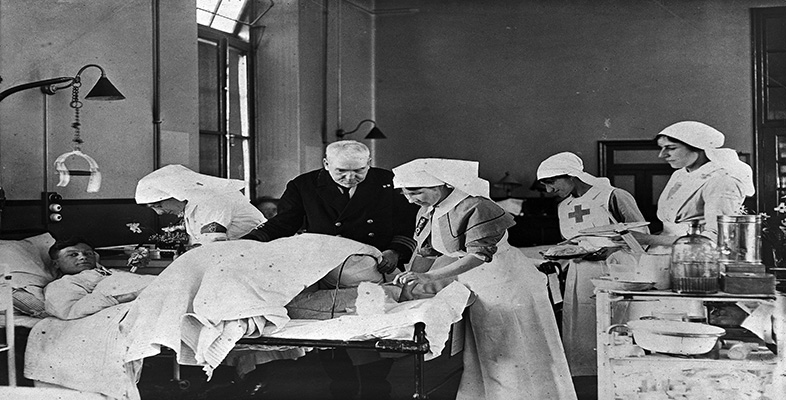1 The rise of laboratory medicine
1.1 Transforming practice
‘Laboratory medicine’ represented a fundamental shift away from the established view of the body and disease. Where hospital medicine saw disease as a collection of symptoms in life, which related to changes in body structure discovered at post-mortem examination, laboratory medicine sought to explain the structure of the body at the cellular level and to describe its function as a complex series of dynamic processes. Within this medical cosmology, the laboratory usurped the hospital as the locus of research, and the laboratory scientist claimed a greater authority than the clinical practitioner. The diagnosis of particular infectious diseases now relied on tests on tissue samples performed at the lab bench, not simply on the subjective analysis of patterns of symptoms.
At the time Nicholas Jewson published his article ‘The disappearance of the sick-man from medical cosmology, 1770–1870’ (1976), few historians would have questioned how the laboratory acquired this central role within medicine. In an area when ‘high tech’, scientific medicine seemed to supply an endless stream of new theories and better therapies, the laboratory was assumed to have won its place simply on the grounds of utility.
While laboratory research undoubtedly revolutionised understanding of body function and disease, its impact on medical practice is less clear-cut. Laboratory medicine did lead to improved techniques of diagnosis, but research produced few new therapies until the twentieth century. Even when new diagnostic methods and new therapies did become available, practitioners did not rush to adopt them.
